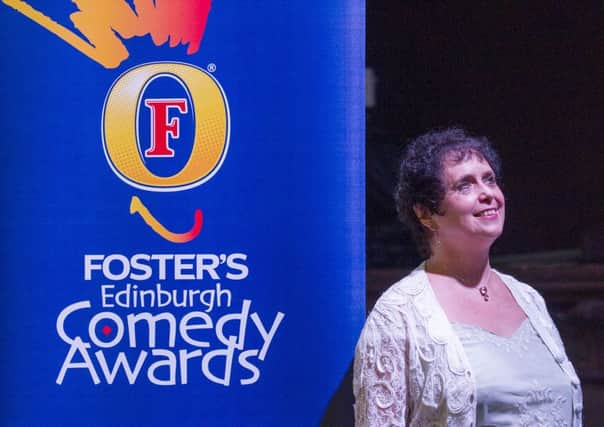Nica Burns: BBC cutbacks will hinder Fringe talent


Nica Burns has expressed fears that stand-ups face being unable to progress their shows after achieving success at the Fringe due to a dwindling number of opportunities to secure slots on mainstream television.
Ms Burns, long-time director of the Foster’s Edinburgh Comedy Awards, said stand-up comedy was gradually “diminishing” on TV at a time when live comedy was booming.
Advertisement
Hide AdShe singled out the controversial decision to axe the BBC3 channel, pointing out that it provided a crucial breakthrough for shows such as Little Britain and Gavin & Stacey.
Ms Burns’ award, which was backed for more than 20 years by Perrier, has provided the launchpad for some of Britain’s biggest comedy names, including Stephen Fry, Hugh Laurie, Frank Sinner, Steve Coogan, Lee Evans and Al Murray.
Comedy now makes up more than a third of the Fringe programme and competition for the Foster’s prize is tougher than ever this year, with more than 600 acts eligible, many of whom are staging free shows.
Acts are barred if they have had their own television show or regularly perform in venues holding more than 500 seats.
Speaking at the annual awards launch, Ms Burns said: “We all know how it works. You develop your craft here and if you’re good, grow your audience. Word of mouth, a good review, some publicity, an award, more word of mouth, more audiences. But what happens next?
“As one senior comedy manager said to me recently, never has television and live work been so interdependent. If you are to graduate out of the comedy clubs and arts centres to the 500-seat theatre and then on beyond to the golden ticket, the arena, you have to do television.
Advertisement
Hide Ad“The holy grail is your own TV series. TV programmes cost a lot to make, TV commissioners need ratings and risks on comedy unknowns are hard to take and then hard to back if the first series doesn’t quite crack it.
“That’s why there was such a reaction when the BBC announced they were intending to axe BBC3, which was set up in 2003 specifically to appeal to 16-34 year olds – and, in the words of the then Culture Secretary Tessa Jowell, to be a ‘powerhouse of new talent’ – and it was.
Advertisement
Hide Ad“It soon became vital to the development of unknown comedy talent giving them their first chance on TV.”
It was confirmed in July that BBC3 would go web-only channel from next year. Jack Whitehall, Coogan, Matt Lucas, Rob Brydon, Olivia Coleman and Russell Howard are among the comics to have protested over its demise.
Ms Burns has spoken out a year after leading Scottish comic Frankie Boyle, who has had to launch recent ventures with the BBC online, blasted the state of TV comedy commissioning, saying those in charge were “too scared to take any risks”.
Ms Burns added: “Online is a great way for young comedians to go and make their own comedy shorts. All they need is a camera or a phone. But at the end of the day what you still really want is broadcast.
“The BBC is a public broadcaster. They are the ones that have to take the lead. It is ridiculous if they are doing new stuff online and you don’t even know it is happening. The worry is things will get completely lost.
“The real concern for me is how stand-up comics performing at the Fringe are going to take the next step. The whole career path is really diminishing. The opportunities for stand-up are just not there. It’s very difficult to grow your audiences if you’re not on television.”